Fritextsökning
Artiklar per år
Innehållstyper
-

ALS – When the body has given up, but the brain persists
The nerve disease ALS gradually deprives the patient of control over the muscles and, eventually, also of speech. The eyes continue to function, though, and with the help of, among other things, a Swedish-developed invention, communication with the outside world can continue. “It’s their window to the world,” says ALS researcher Caroline Ingre.
-

Great Swedish innovations: Eye treatment became a feather in Pharmacia’s cap
From complicated and sometimes risky surgery to a routine procedure. Pharmacia’s injectable Healon revolutionised the field of eye surgery - and is considered by us one of the most important contemporary Swedish innovations in the field of medicine.
-

New study: Post-Covid symptoms are common even after mild Covid-19
According to researchers at the University of Gothenburg, loss of smell and taste, shortness of breath and chest symptoms are the most common complaints after a mild Covid infection.
-

The stomach medication that became the biggest blockbuster of the 1990s
The omeprazole molecule was synthesised as early as 1979, but it took many years before the then Astra had an approved pharmaceutical. Once this happened, a tablet was available that was soon to help millions of people worldwide and break all sales records.
-
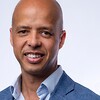
He is zooming in on topical preparations
According to Zelmic CEO David Sagna, topical products in drug development is a growing market, and to keep pace with the development, the company is awaiting approval for its new GMP facility.
-
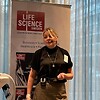
Swedish breakthrough in Alzheimer’s: “We can finally present great data”
Treatments for Alzheimer’s disease are currently among the hottest topics in drug development. Two Swedish research companies with high ambitions and successes in the field participated in Bioscience 2022 conference at Life City in Hagastaden, Stockholm.
-

Neanderthal genes and Nobel Prize in a popular lecture at Bioscience
An inherited gene variant from our ”evolutionary cousins” – the extinct Neanderthals – may affect how our bodies break down certain drugs. “It’s only a matter of time before we actively start screening for it,” said KI researcher Hugo Zeberg when describing the study at Bioscience 2022.
-
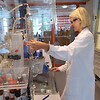
A green nursery for biotech rooted in the Scanian soil
Red Glead has established itself as one of Lund’s largest companies in pharmaceutical development. Life Science Sweden went to Skåne and met two of the founders, Johan Evenäs and Martina Kvist Reimer.
-

Novavax is developing a vaccine candidate against Covid-19 and seasonal flu
A combined vaccine against both Covid-19 and seasonal flu is showing promising results in studies, according to the American drug developer Novavax. The adjuvant, which forms an essential part of the vaccine, originates from Sweden.
-

The pandemic caused a reshuffle among the world’s vaccine giants – here is the new top list
Fuelled by the pandemic, the power balance in the global vaccine market has completely changed in recent years, a survey from Fierce Pharma shows
-
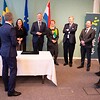
Extensive agreements signed at Scilifelab
Four agreements were signed between Swedish and Dutch life science players in connection with the Dutch state visit earlier this month.
-

She is Sweden´s new Minister of Healthcare
Today, Tuesday, Swedish Prime Minister Ulf Kristersson, who leads the Moderate Party and the centre-right coalition in Sweden, presented the government's new ministers. Christian Democrat Jakob Forssmed gets the role of Minister for Social Affairs and Acko Ankarberg Johansson (also of the Christian Democrat Party) becomes Minister for Health Care.
-
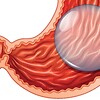
Alert from the Swedish Medicines Agency: Many complications with gastric balloons
According to the Swedish Medicines Agency, an increasing number of serious complications are being reported in procedures with gastric balloons as a method for weight loss. The authority fears significant shortcomings in the information to patients both before and after the procedure.
-

“We need to build flexible operating theatres”
Flexible operating theatres, micro-sensors on surgeons to monitor their well-being and 3D images projected onto organs to be operated on. These are a few ideas that three specialist surgeons are suggesting for the operating theatre of the future.
-

“We aim to be a start-up company with an academic spirit”
Chronic pain and Alzheimer’s are two diseases that plague many people worldwide and seem impossible to cure. However, Huddinge-based company Alzecure is working on developing drugs for both conditions.
-

The TFS family is growing
TFS HealthScience is a European based CRO company with broad expertise and experiences in the biotech and pharmaceutical sector. The company is growing and the TFS family welcomes new members.
-

Biosimilars bring price pressure, but are they sufficiently used?
When biosimilars were introduced just over 16 years ago, hopes were raised that they would give many more patients access to effective but otherwise extremely expensive treatments with biological drugs. So, how well has Swedish healthcare used biosimilars? The answer partly depends on whom you ask.
-
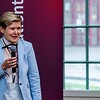
FOKUS Patient turns international
FOKUS Patient is arranging conferences over 3 days in October, and this year, the focus will be on international collaborations.
-

Bought a tablet factory – and built his own empire
In 1995, Thomas Eldered was CEO of one of Pharmacia’s factories in the Stockholm area when the Swedish pharmaceutical giant, after a takeover, decided to move its production abroad. 34-year-old Thomas was facing an imminent risk of losing his job. However, instead, it actually turned out to be the starting point for one of the biggest success stories in Swedish life science.
-
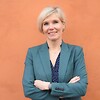
Marie Gårdmark: Potential step change – EU regulators get to play with data
A new pilot from EMA is starting in September to assess wether the analysis of 'raw data' by regulatory authorities improves the evaluation of marketing approval for new medicines. Marie Grådmark writes in a column that she is looking forward to the outcome of the pilot to hopefully then understand if “in house” analyses actually will add value.
-

Swedish-Danish meeting at Medicon Village: “One of the most important life science congresses”
For the eleventh year, The Future of Swedish and Danish Life Science was held on Wednesday, and the event continues to function as a connecting link between the life science sectors of both countries. This year’s event attracted nearly 450 visitors.
-
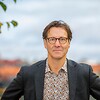
Anders Blanck about his 17 years at Lif: “The industry is enjoying greater public trust now"
The announcement came as a surprise to those around him, but according to the protagonist himself, the timing was excellent. Anders Blanck is now leaving Lif – a decision that has been growing for some time. “I have been pretty much married to my mission. However, I will turn 56 this autumn, and if I’m going to do something else in my professional life, now is the time,” he says.
-
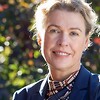
Anna Törner: Kalashnikovs in a new guise
Thanks to resisting European regulatory authorities, Europe has been spared the opioid epidemic. In the 1960s, the situation was the opposite as the American pharmaceutical authority, the Food and Drug Administration (FDA), refused to approve thalidomide (Neurosedyn), writes Anna Törner in a column.
-
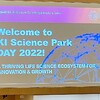
Lucy Robertshaw: Did you know Stockholm wants to be in top 5 in the world for Life Sciences?
Karolinska Institutet Solna Campus has certainly become the next “Kendall Square”, writes Lucy Robertshaw in a column.